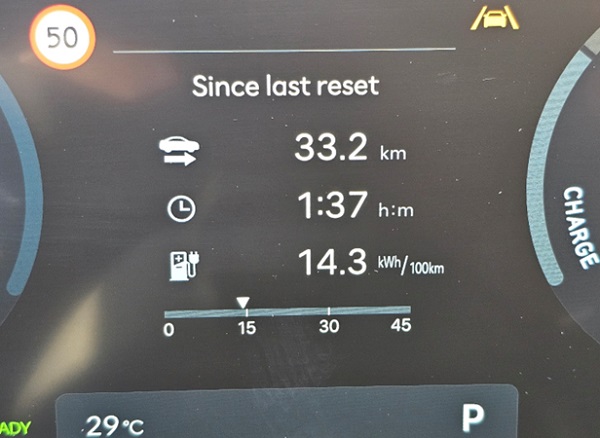 EV consumption over a mixed motorway and country route;
EV consumption over a mixed motorway and country route;
Colin Chapman, the founder of Lotus Cars, was famously quoted as saying: “Adding power makes you faster on the straights. Subtracting weight makes you faster everywhere”. When he said this some 70 years ago he was concentrating on how to get his cars around a racing circuit in the least possible time. Similarly, it is widely quoted that, on average, a modern Formula 1 car will lose about 0.3 seconds of time per lap for every 10 kg of extra weight that it carries. So what does this have to do with modern cars, and, particularly, with electric cars?
Weight, which scientifically is the measure of the force of gravity acting on a body of matter (you, me or a car), is not only burdensome on a racing circuit. Imagine walking up a steep hill with a 25 kg rucksack on your back. Half way up the hill, you take the rucksack off and continue… your legs (and for me, my back also) will almost certainly appreciate the relief of that reduction in weight! Thus, it is with almost any means of movement, we are constrained by weight. The same thing applies on level ground of course, but (usually) takes longer to notice.
With reference to fuelled transport, whether by explosion, compression or electrons, the same rules apply. The heavier the vehicle, the more energy is required to propel it, and, as many people are aware, battery cars are almost invariably heavier than their petrol equivalents. There is a general rule of thumb that, within the operating weights of most personal transport, and all other things being equal, each additional 1% of weight equates to an equivalent 1% of energy used, whether that weight comes from additional passengers or additional batteries. Thus, adding additional batteries to increase range, as manufacturers are wont to do for any given battery technology, frustratingly but perhaps not surprisingly, also increases energy usage.
The good news is that, according to the EU, electric engine and recovery systems are roughly 90% efficient in their energy use, whereas combustion engines rarely exceed 40% efficiency owing to a number of factors not least of which the heat generation from having so many moving parts. So, although the heavier an electric car, the more energy it will burn, it is still using it far more efficiently than its thermic rivals.
In terms of cost to the consumer in Luxembourg, how does this compare over 10,000 km? Taking diesel prices at €1.40 per litre, and an average fuel consumption for a crossover SUV of 6 l/100 km, as compared with public charging at 34.5₵per KwH or domestic at +- 20 ₵per KwH, and an average consumption of 16 KwH/100 km, the difference is:
- Diesel vehicle: €840 over 10,000 km
- Electric vehicle (public charger only): €552 over 10,000 km
- Electric vehicle (domestic charging only): €320 over 10,000 km
So, if you want to reduce the energy consumption of your vehicle, there is a strong argument for keeping it lean to keep it clean.









